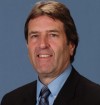1st Quarter 2014
“Never read predictions, especially about the future” —Casey Stengel, legendary Mets manager
 Download Newsletter
Download Newsletter
To our clients and friends:
The above quote has erroneously been attributed to Yogi Berra over the years. It certainly sounds like something he would say. But it was Casey Stengel, another baseball great, who actually deserves the credit.
Predictions have always been the bane of investors.Legendary stock speculator Jesse Livermore, a famous stock trader during the early 1900’s once said "I never try to predict or anticipate. I only try to react to what the market is telling me by its behavior."
And then there is William O’Neil, author of the classic book, “How to Make Money in Stocks”. O’Neil is what is known as a “market technician”, which means he looks at price and volume, market breadth and other technical indicators. He makes it clear in his writings that he does not believe in crystal balls, personal opinions or predictions—they are of no use.
In his book, O’Neil says: “You do not need to know what the market is going to do! All you need to know is what the market has actually done! This is the key! Think about it for a minute. There is a fortune in this paragraph."
About the Author
Andrew J. Fama
Fama Fiduciary Wealth LLC is an SEC-Registered Investment Advisory firm originally established in 2001 under the name of Andrew J. Fama Asset Management. With over 30 years of experience representing financial institutions, businesses and individuals, Mr. Fama understands the risks inherent in all types of investments.
To learn more about Andrew J. Fama click here.


